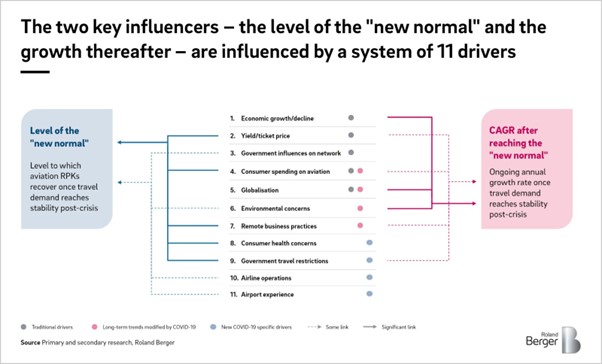Aviation Accessories Industry in China
1.1 Insights into the Expectations and Demands of China suppliers
1.1.1 Flexibility and Adaptability
China suppliers understand the dynamic nature of the aviation industry and expect their customers to demonstrate flexibility and adaptability. They appreciate customers who can accommodate changes in production schedules, order quantities, and specifications. The ability to respond quickly to market demands and adjust requirements is valued by China suppliers.
1.1.2 Supply Chain Collaboration
China suppliers seek collaborative relationships with customers in the aviation accessories industry. They expect customers to share information and collaborate on supply chain management to optimize production processes and reduce lead times. Effective collaboration helps ensure a smooth flow of materials and timely delivery of products.
1.1.3 Ethical and Social Responsibility
China suppliers are increasingly focused on ethical and social responsibility. They expect customers to adhere to ethical business practices, including fair treatment of workers, responsible sourcing of materials, and sustainable manufacturing processes. Customers who demonstrate a commitment to corporate social responsibility are more likely to build strong partnerships with China suppliers.

1.1.4 Market Insights and Feedback
China suppliers value customers who provide market insights and feedback. They appreciate customers who share information about industry trends, customer preferences, and market demands. This feedback helps China suppliers align their product offerings, innovate, and stay competitive in the aviation accessories industry.
1.2 Challenges faced by suppliers in the aviation accessories industry
Suppliers in the aviation accessories industry face several challenges that can impact their operations and ability to meet customer demands. Here are some of the key challenges faced by suppliers in this industry:
1.2.1 Stringent Regulatory Requirements
Compliance with stringent regulatory requirements is a major challenge for suppliers. The aviation industry is heavily regulated, and suppliers must meet various international standards and certifications. Adhering to these requirements can be complex, time-consuming, and costly, requiring significant investments in quality control systems and certifications.
1.2.2 Fluctuating Market Demand
The aviation industry is susceptible to market fluctuations and economic uncertainties. Suppliers may face challenges in accurately forecasting demand and managing inventory levels. Sudden shifts in customer orders or market conditions can lead to overstocking or understocking of aviation accessories, impacting their profitability and operational efficiency.
1.2.3 Intense Competition
The aviation accessories industry is highly competitive, with numerous suppliers vying for business. Suppliers must differentiate themselves through product quality, pricing, innovation, and customer service. Competing with established players and attracting new customers can be challenging, especially for smaller or newer suppliers.

1.3 Challenges faced by customers and how they overcame them.
1.3.1 Language Barrier
This has been a widespread issue reported by numerous consumers. They are not fluent in many languages, and as a result, they misinterpreted the quotation. To win the business, they give a date that cannot be met and a reduced price that cannot be met, resulting in complete misunderstanding. Many consumers now prefer to have a middle agent that speaks and understands both languages in order to negotiate the price and obtain reliable information.
1.3.2 Change in Price
Small price variations do occur as a result of market material price fluctuations and labour expenses, but in other circumstances, small deviations might double or triple the initial price. Why? Because the pricing may not include the design element of the project or other steps in the overall process. Materials may also be sourced inconsistently, and the vendor may simply shop around for the lowest material cost for your estimate, which will not be accessible when you commission the injection moulding tools. Customers may now confirm that the vendor has included the cost of each step in the quotation, from research and design to test expenses.
1.4 Tips for dealing with Chinese suppliers and managing expectations
If you are a new importer trying to do business with Chinese manufacturers, you may initially find the procedure intimidating and even complicated. Here are five crucial pointers to assist you navigate the seas while dealing with Chinese vendors.
1.4.1 Develop Personal Ties Beyond Business
Treating your suppliers as friends and going above and above will strengthen your business ties and facilitate future negotiations. Here are a few examples:
Research their professional, academic, and personal backgrounds; consider long-term relationship building; identify key company decision-makers; and send them greetings for the Chinese New Year or invite them to your nation.

1.4.2 Understand Local Market Practice
While China has been a major source of variety, it is also a difficult market to navigate. Although China has taken numerous measures to expand its international trade, it is critical that you:
o Centralize communications with suppliers, use a local purchasing agent in China.
o Set up your own China office with local employees. Hire Mandarin-speaking personnel in your country to assist with supplier management.
1.4.3 Understand the Impact of Chinese Holidays
A Chinese New Year is a huge holiday that causes a massive closure, which might disrupt your supply chain and cost you more money due to late shipment. So, it's best to schedule your orders so that they don't suffer as a result of the New Year's festivities. It is not recommended to order in bulk immediately before the holidays because demand may increase, resulting in a price increase.

